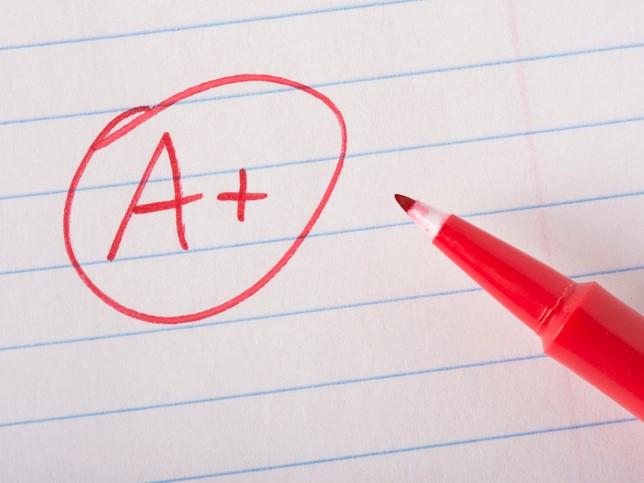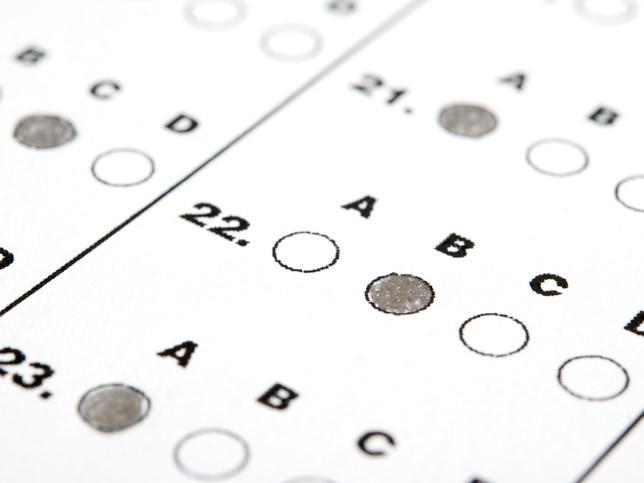“You learn more,” says the old adage, “from failure than from success.” If that’s the case, then students at Ivy League schools are learning precious little.
According to a 2019 analysis, of the eight universities that comprise the Ivy League in the US, only Princeton’s average GPA fell outside the top 20 nationwide. Four out of the five highest average GPAs were recorded at the Ivies. And that was before the pandemic hit, turning dormitories into examination halls and forcing colleges to adopt grading practices that contributed to significant inflation at schools that published relevant statistics.
Most who voice concerns about this trend focus on the concerns of administrators and employers, assuming that students themselves would favour higher grades. Indeed, when I chose to attend Columbia starting this spring, I took its grading practices into consideration. After all, who wouldn’t want to graduate from a prestigious university with a GPA of 3.6 or above?
- Why you should write feedback to your students before they’ve submitted
- A (very) simple solution to cheating
- Grades are dehumanising, but ‘ungrading’ is no simple solution
But I have come to realise that this mentality reflects a short-termism that stunts both personal and academic growth.
One catalyst for this realisation was the abundance of evidence indicating that failure is more important to learning than success. In fact, many have argued that learners should see failure as their greatest opportunity.
But when the highest grade an instructor can grant is also the most commonly awarded one, that mindset is almost impossible to maintain. Success, under these circumstances, is simply a lack of failure. In this way, grade inflation functions exactly like an addiction: over time, the user grows to fear the absence of a drug more than they crave its effects.
Who succeeds in this academic environment? A student who remembers that the ratio of reward to effort declines steeply, quickly, and so cultivates a broad but shallow knowledge base rather than taking the time to develop a reflexive familiarity with any particular subject. A student who realises that the invisible hand of the academy could always convert the D they received on their calculus exam to an A+ and thus learns to focus on the final result to the exclusion of the process. A student who, understanding that professors can punish mistakes infinitely more than they can reward brilliance, scrupulously avoids errors rather than dares to pursue deep and transformative insights. In short, a human algorithm.
The result is that students often feel they have no margin for error. The pressure to avoid mistakes is particularly intense in the age of social media, which creates an illusion of perfection among already self-conscious young adults. Grade inflation fosters a straight-A culture that perpetuates this illusion. That culture, in turn, both reflects and reinforces ambitious students’ desire to be perfect, making them more vulnerable to the bouts of depression and anxiety that often characterise the college experience.
For some, the consequences of failure are catastrophic. As an undergraduate at the School of General Studies, my financial aid is determined by how I fare compared to my peers, who regularly outperform Columbia College students. As a result, students like me walk into our final exams knowing that thousands of dollars are on the line.
Is it a coincidence that we have witnessed a sharp rise in suicide rates among college students since 2000, when grade inflation neared its current peak and social media began to merge with reality? I was a sophomore at Ithaca High School, pondering my college prospects, when six Cornell students committed suicide in our gorges in a single academic year. To their credit, administrators at Cornell responded by installing life-saving nets below the bridges on campus. But the existence of those literal nets belies a lack of figurative ones.
I propose that normalising failure could, paradoxically, improve students’ mental health, give them the freedom to learn more effectively and make them more resilient all at once. Ivy League schools are uniquely poised to spearhead this campaign – if they commit to the principles of transparency, reciprocity and support.
First, transparency. Unlike UC Berkeley and others, Ivy League universities currently do not publish comprehensive statistics about student performance. For their students to remain competitive entering the job market with lower GPAs, these institutions must become more accountable.
Second, given the competitive nature of academia, it is hopeless to expect individual schools or professors to change this trend. A commitment to collective action is necessary.
Third, universities must invest in expanded access to psychological services. In the short term, the prospect of receiving lower grades would be daunting for students who, for the most part, graduated at or near the top of their high-school class. In a system that regards failure not just as a real possibility but as an essential component of the learning process, counsellors can play as active a role as professors in the collaborative effort to prepare students for the outside world.
As a thought experiment, imagine attending a school so renowned that upon graduating a job offer would almost certainly be forthcoming. Now imagine that the class average is fixed at a C. How would it feel to get an A? How would it feel to get an F? What if, on these hallowed grounds where even geniuses have stumbled before they strutted, genuine failure could still mark the beginning of redemption rather than the end of a dream?
Jacob Clay is an undergraduate at the Columbia University School of General Studies.
If you found this interesting and want advice and insight from academics and university staff delivered direct to your inbox each week, sign up for the THE Campus newsletter.




comment